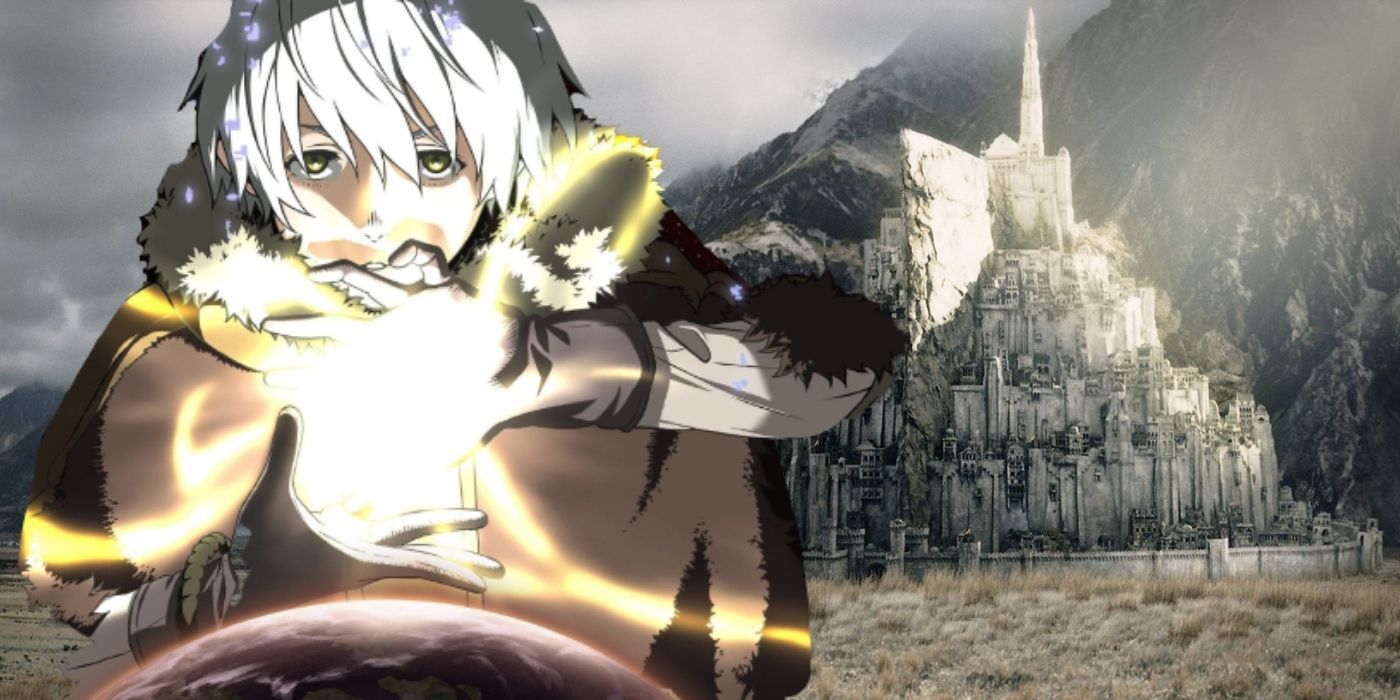
To Your Eternity started subverting tropes right out of the gate: the orphan boy is not the protagonist, and a "monster" is instead. Still, classic speculative fiction tropes exist for a reason, and when incorporated with skill, help contribute to a story's timelessness.
To Your Eternity is well on its way to greatness, and the way the series cleverly adopts and alters tropes has a lot to do with that. Just because a storytelling technique has been used before doesn't mean it can't be used again, improved, or changed to reflect a new perspective. When it comes to revitalizing tropes, few shows have ever been this successful.
10 Fantasy: A Quest Across a Treacherous Landscape (Subverted)
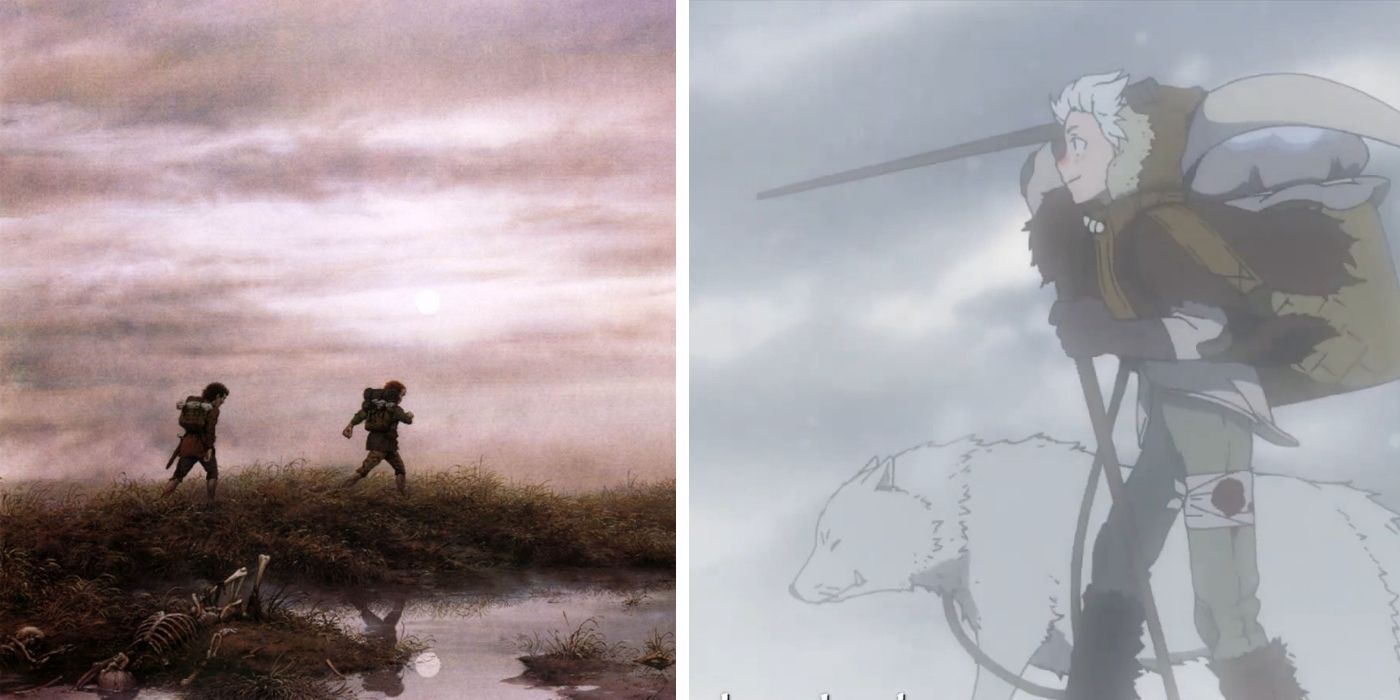
In every epic fantasy, the heroes inevitably find themselves embarking on a quest. Whether it's to save a princess, reclaim a throne, go to war, or throw a ring into a volcano, any fantasy protagonist worth their salt finds themself headed for a far-off destination. In The Lord of the Rings, it's Mordor. In Attack on Titan, it's that buried basement in Shinganshina.
Right from the word go, To Your Eternity incorporates this trope and then drops it on its head. A boy in the arctic, determined to find his family and civilization, sets out for the city with the alien entity by his side. In most fantasy stories, the trek would be treacherous, but he'd get there in the end. Not so in To Your Eternity. The boy realizes the quest is hopeless and turns back, resigning himself to a bad ending.
9 Science Fiction: Mutation and Body Horror
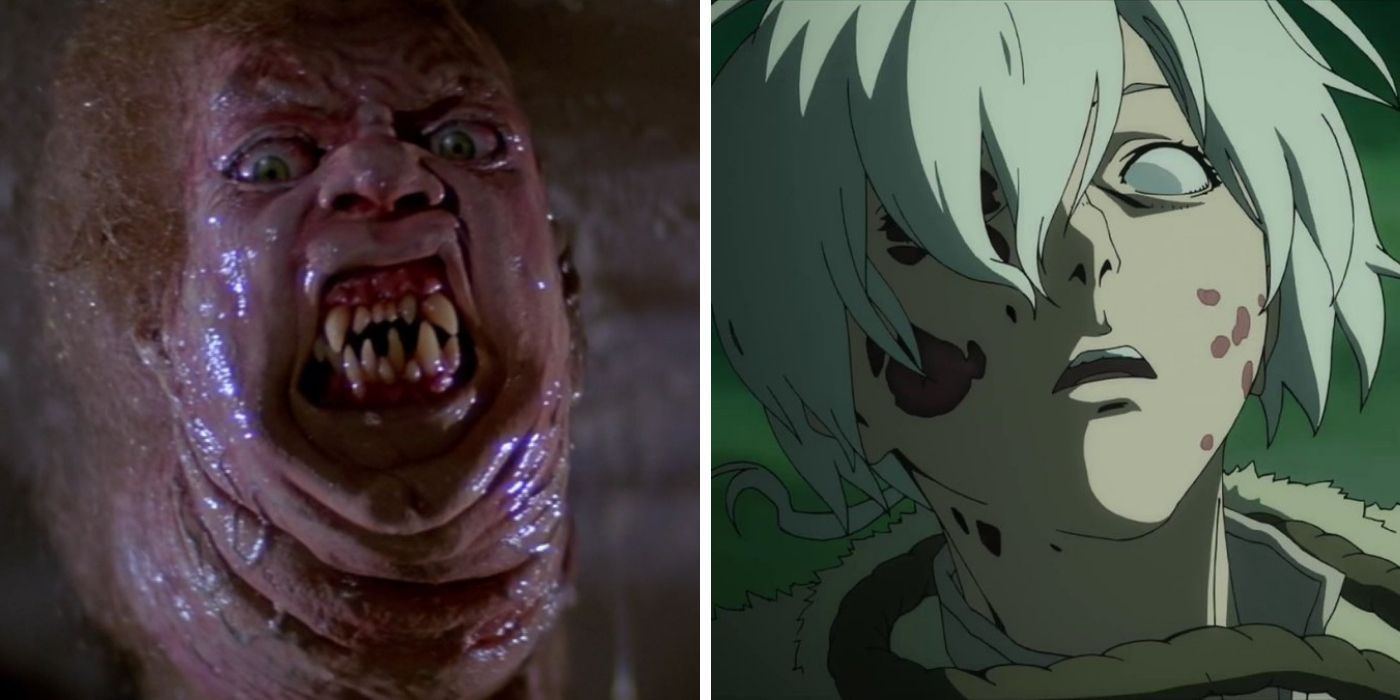
The best sci-fi horror creators know there's nothing more disturbing than perverting the mundane. John Carpenter, at his peak, was a true master of this. He understood that aliens are scariest when they alter not just the world, but the physical bodies of those they come in contact with.
Parallels between The Thing and To Your Eternity are impossible to avoid. Fushi, or the entity, transforms from a stone into a dog and then into a human. The eponymous "thing" undergoes a similar trajectory of transformations, first disguising itself as a dog and later taking on a mutated human form. However, once again, To Your Eternity disregards the precedent: the Thing is malevolent, but Fushi is the protagonist.
8 Fantasy: The Tragic Immortal
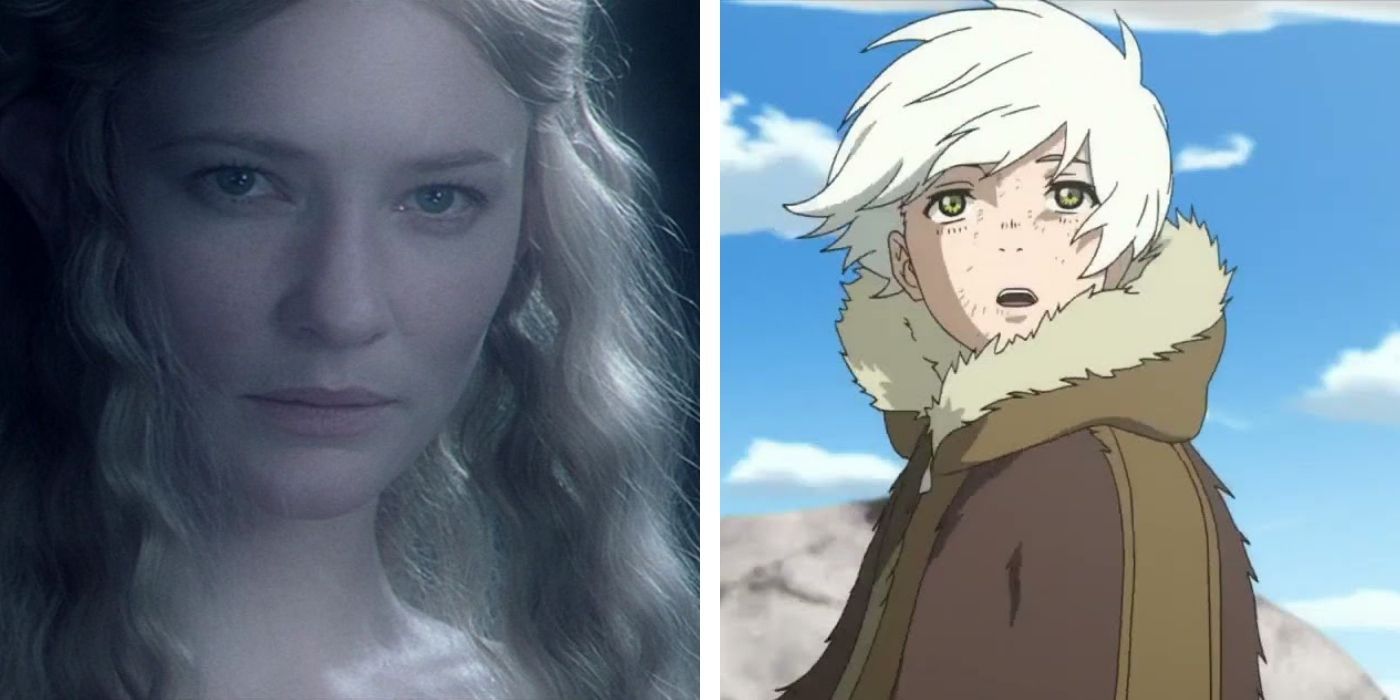
Immortality isn't all it's cracked up to be, and it doesn't take a lame sparkly vampire to prove it. Fantasy stories have long used immortal species as a means of confronting mortality. In Peter Jackson's version of The Lord of the Rings, Arwen must choose between living forever or one day dying like the one she loves. What's worse: To die? Or to carry on alone while watching everyone else pass on?
Fushi doesn't yet have much of their own identity, but gradually this entity will become more human. Yet Fushi will never be like anyone else, and cannot die. They are only just learning how to live. Eventually, the weight of their immortality is going to become a heavy burden.
7 Science Fiction: Lost Civilizations
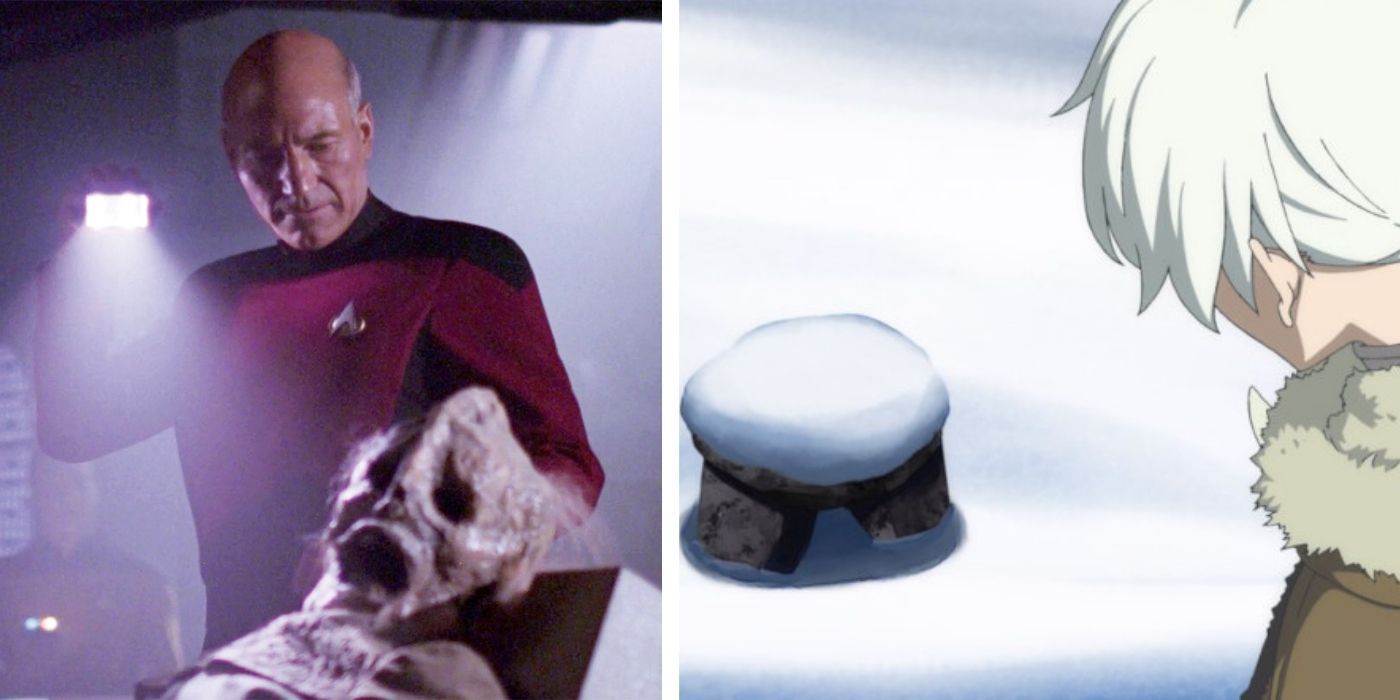
Ancient astronauts and lost civilizations often feature in sci-fi storylines. Take, for instance, Prometheus, The Fifth Element, or Star Trek. Nothing establishes a cryptic history like characters coming across ruins that suggest that a once-inhabited place has long been abandoned. Often, this trope is used to create suspense, forcing both the audience and characters to ask: what happened here?
For the boy in Your Eternity, following the stone markers left by previous travelers is, at first, a sign that he's going the right way, as though voices from the past are guiding him. But when he comes across a warning and the debris of shattered wagons, cause for hope becomes a cause for despair.
6 Fantasy: Gods and Monsters Abound
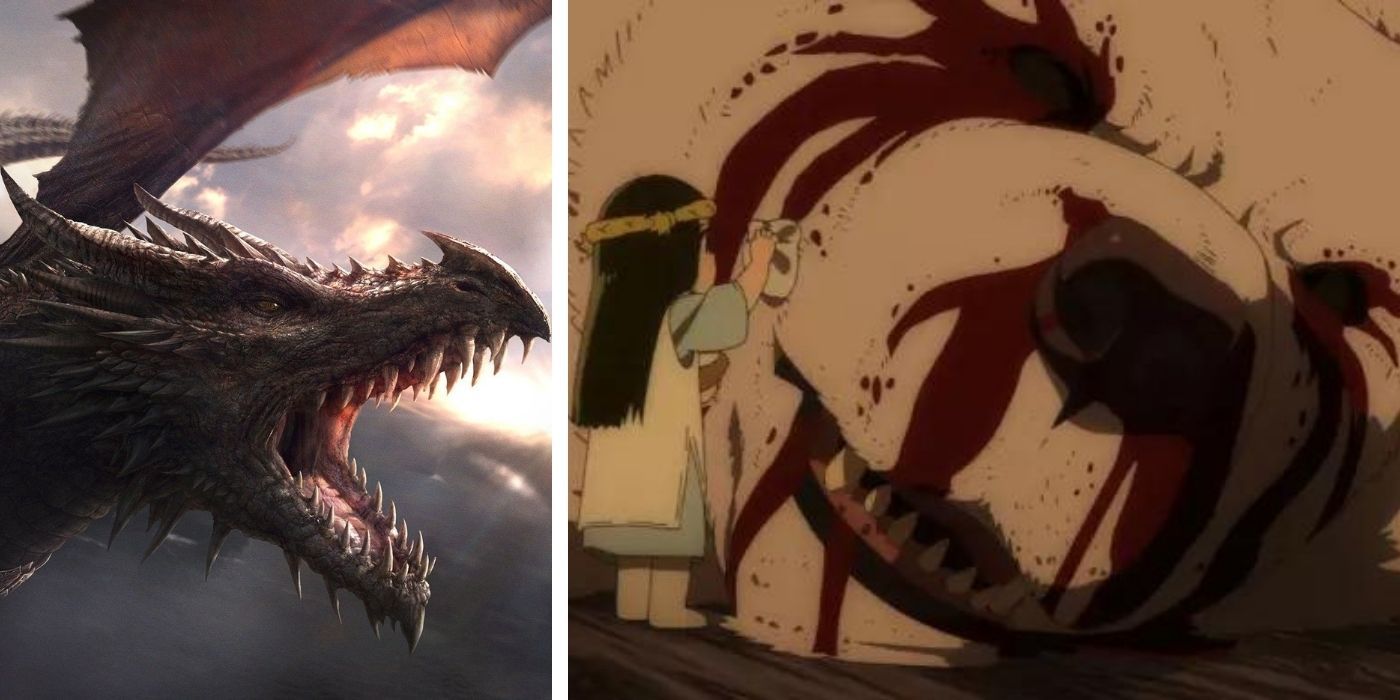
Fantasy would be no fun without monsters, and it's hard to think of any epic that doesn't feature dragons, trolls, gods, forest spirits, or other beasties. After all, every good epic needs a Balrog. Sometimes these monsters form part of the main, mostly humanoid cast, as in Attack on Titan, or are sentient. Often, however, monsters are just monsters.
In the case of To Your Eternity, the first major monster (apart from Fushi, of course) is Oniguma, an enormous mountain-dwelling polar bear the locals consider a god. While he's not especially interesting, the impact Oniguma has on society certainly is, as the villagers sacrifice a child annually to placate him.
5 Science Fiction: Humans Are The Real Monsters
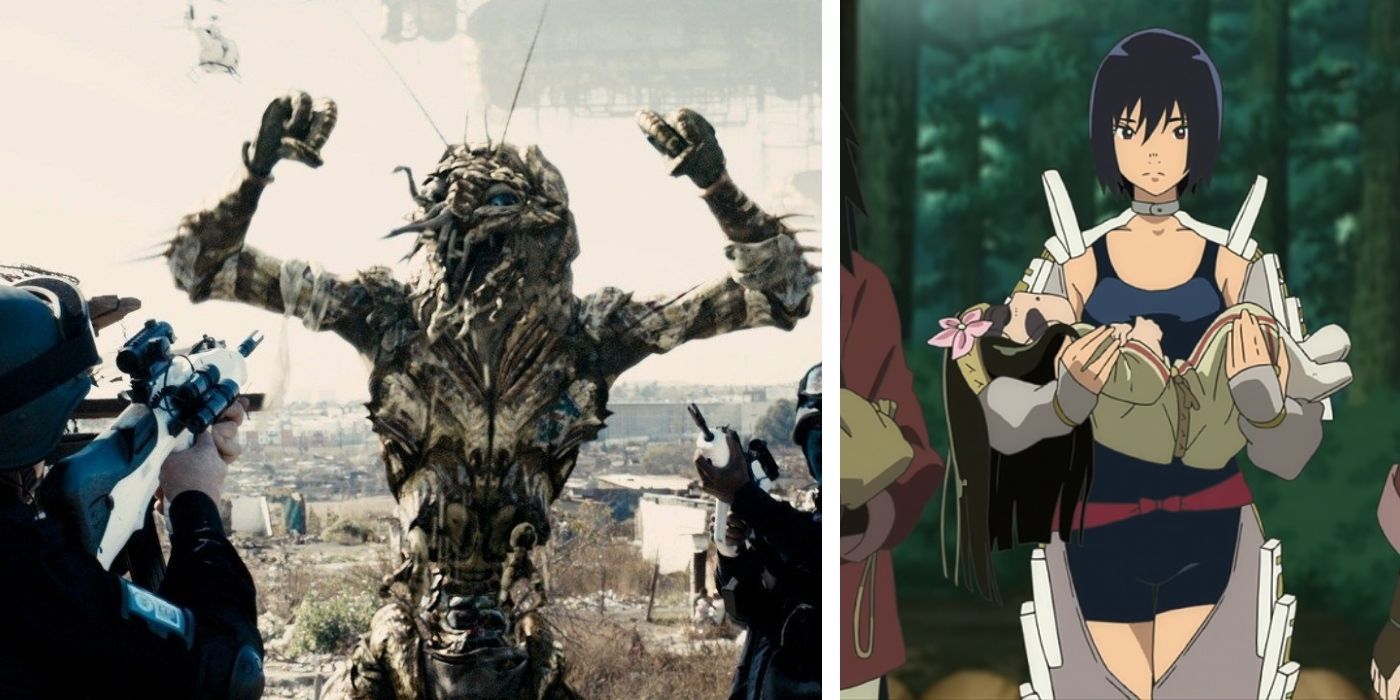
The aliens in District 9 did not ask to crash land and become oppressed, and E.T. didn't deserve to be experimented on. Time and time again, humanity has proved the most monstrous of all creatures. Science fiction uses this trope to the utmost as a means of addressing human failings and their morality.
In To Your Eternity, it's the villagers who choose to sacrifice little girls to Oniguma. Far from being unbelievable, most audiences are more disappointed than shocked by this revelation. The world is all too accustomed to witnessing the crimes people commit in the name of faith.
4 Fantasy: The Powerful Artifact (Subverted)
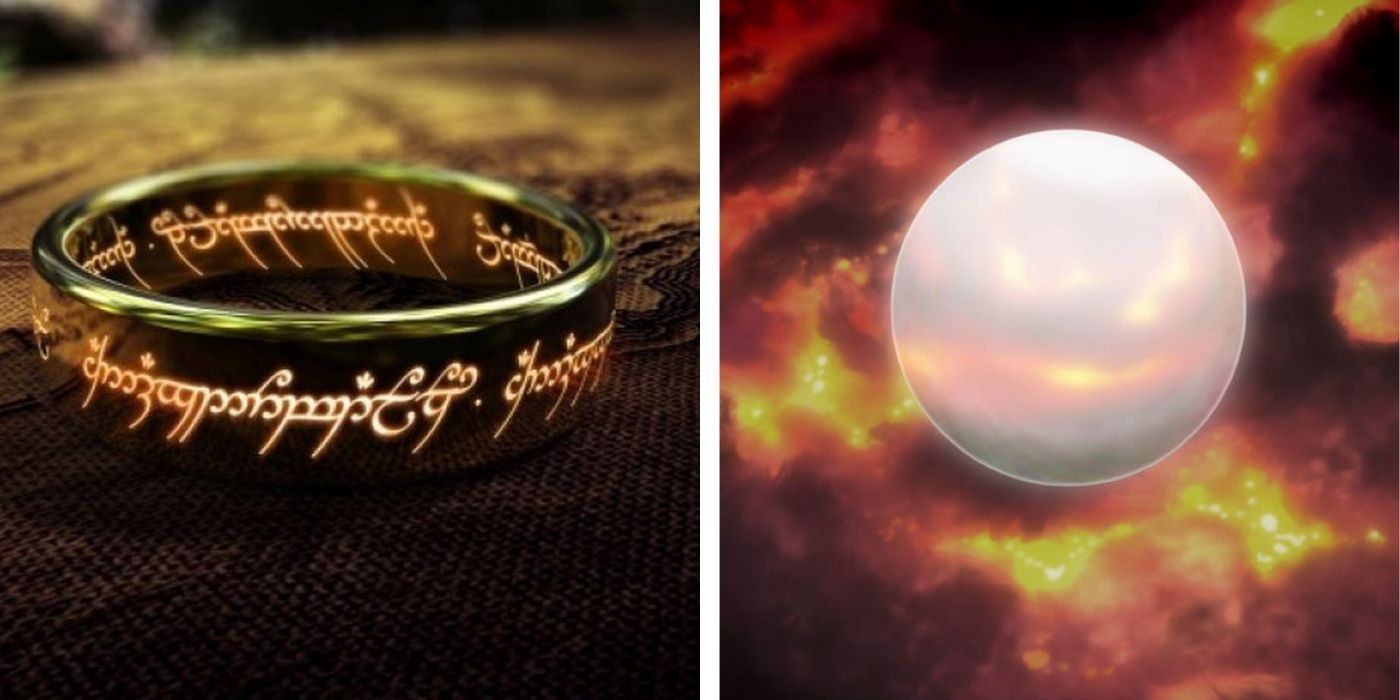
There's always a One Ring, an Ark of the Covenant, an Elder Wand, a talisman too dangerous to exist. A powerful artifact has often propelled entire stories forward, giving characters a clear objective. But what happens when the artifact in question gradually becomes sentient, as in Fushi's case? When the rock becomes a wolf and then becomes a person?
In a sense, this subversion especially is a stroke of genius. Fushi is the artifact at the center of the story, and yet it's still a story about the characters surrounding the artifact. Fushi is only a person if people teach them to be. Like the One Ring or the Holy Grail, Fushi holds the power to change each and every soul they come in contact with. The difference is that this time, that power is reciprocated. In To You Eternity, the One Ring is growing a conscience. How beautiful is that?
3 Science Fiction: The Post-Apocalyptic Wasteland
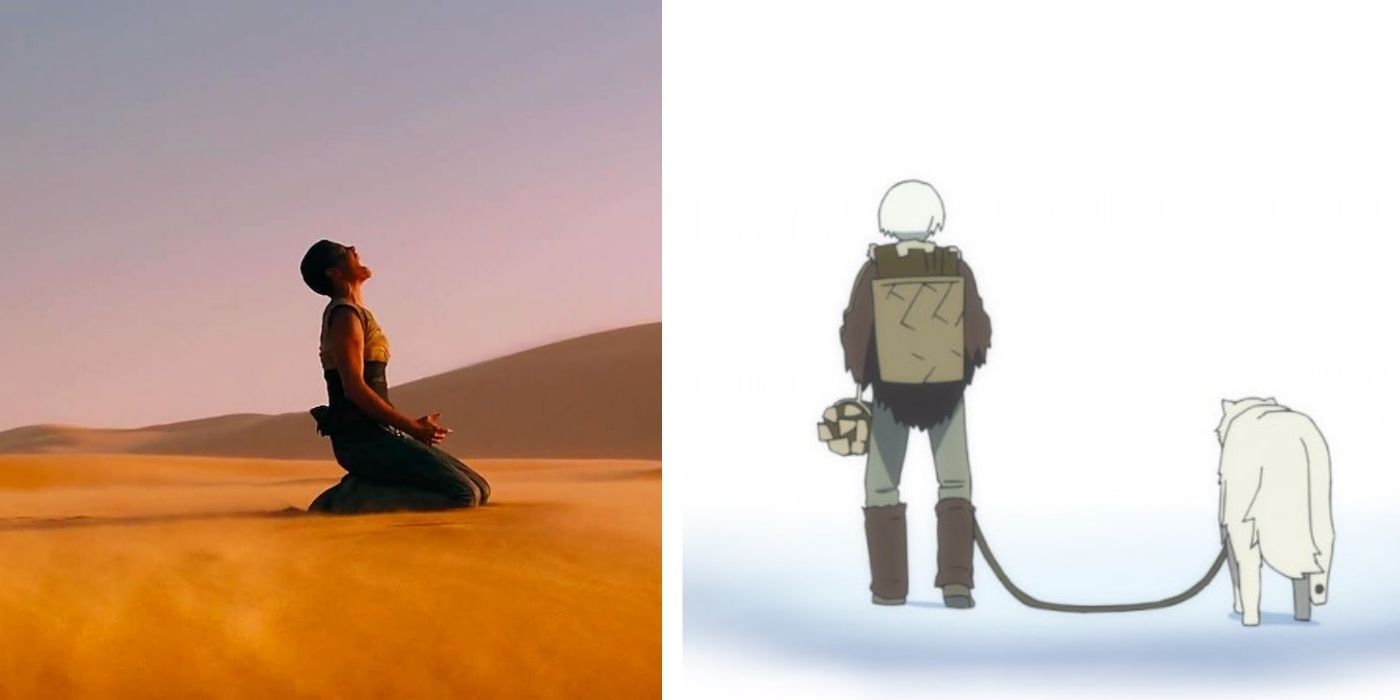
Six episodes into To Your Eternity, it's not yet certain where the bulk of civilization stands. Fushi is immortal, so it's likely audiences will see civilizations come and go over the course of the story. Even so, the first setting is a barren, abandoned tundra.
Wastelands are often the backdrop for science fiction stories. Be it a Mad Max-ian desert, a landfill, or the surface of Mars, a desolate setting really becomes a character in itself and forces an audience to consider all they take for granted. Wastelands are an uncomfortable warning. But then, one of sci-fi's greatest strengths as a genre is its ability to make people uncomfortable.
2 Fantasy: The Damsel in Distress
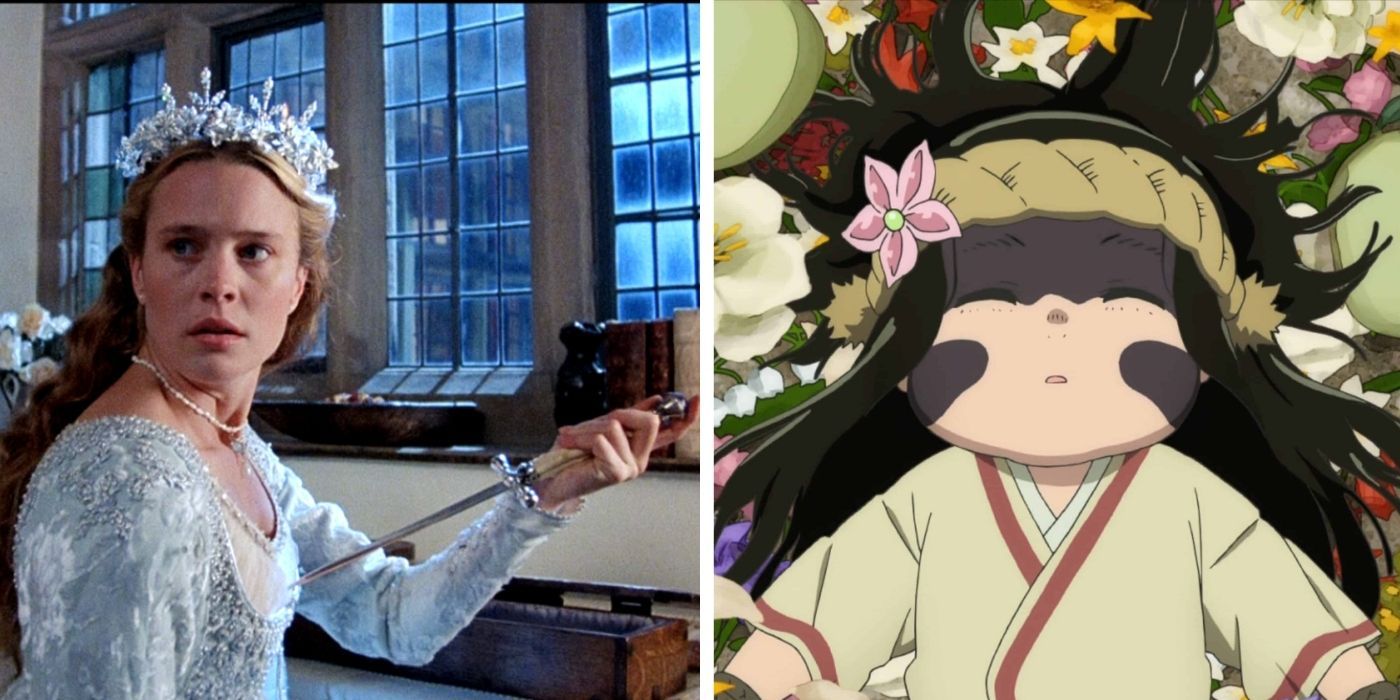
One of the most well-worn tropes in fantasy fiction is the Damsel in Distress. The princess trapped in a tower, the child sacrifice, the woman forced to marry against her will: this trope has been played out to the point of exhaustion, objectifying female characters and denying their agency for centuries. And yet, sometimes speculative fiction does just enough to change this trope.
March is only a child, but she's already saved Fushi in her own way. Buttercup in The Princess Bride is never helpless, and these days, Zelda can hold her own in a fight. Because this trope can be so effectively subverted, it's only more frustrating when don't bother.
1 Science Fiction: First Contact
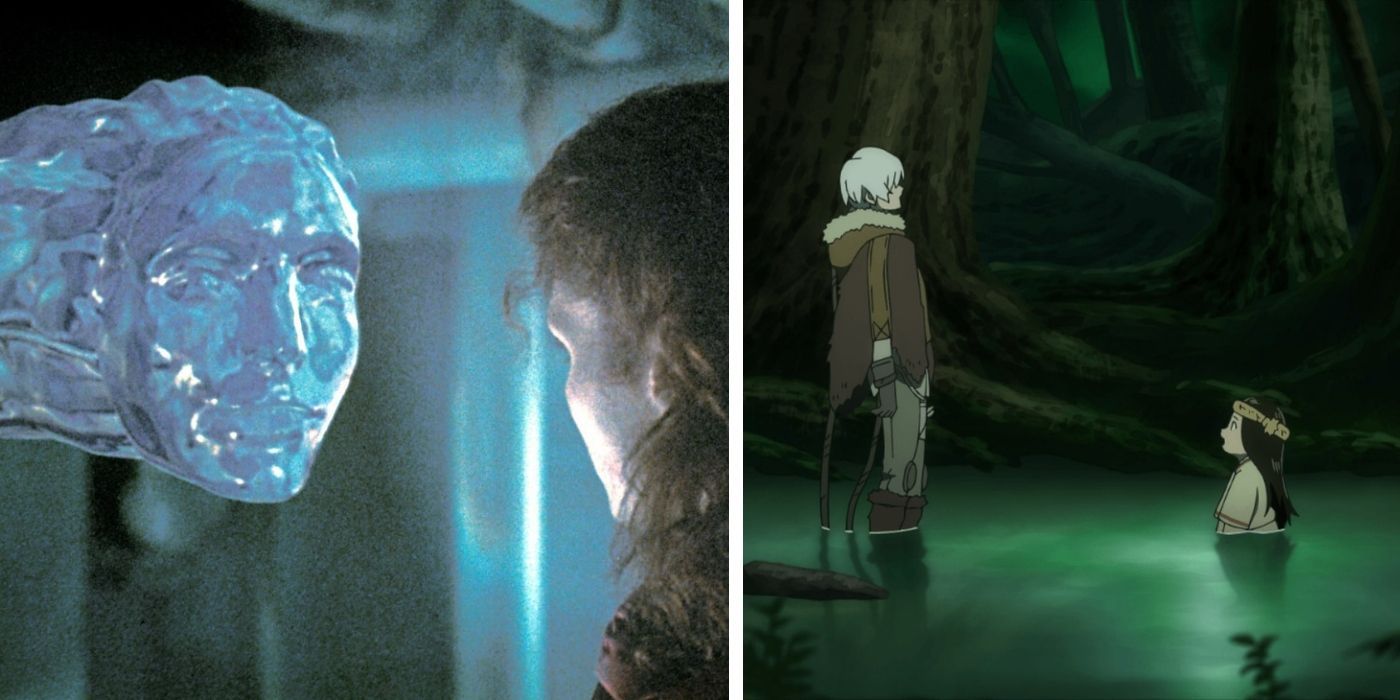
A glowing finger extended in the darkness, an amorphous entity that mirrors a human face, an alien infant bursting from an abdomen: there are so many ways for other species to make first contact. These meet-cutes are often the best scenes in their respective stories.
Luckily, To You Eternity nails this like it nails everything else. The boy embraces Fushi, mistaking the entity for a pet, and speaks to them like a friend. And when March meets Fushi, she sees them for what they are: a child who hasn't had decent parents, something that can learn. Fushi, like anyone else, has the potential to become anything.
0 Comments